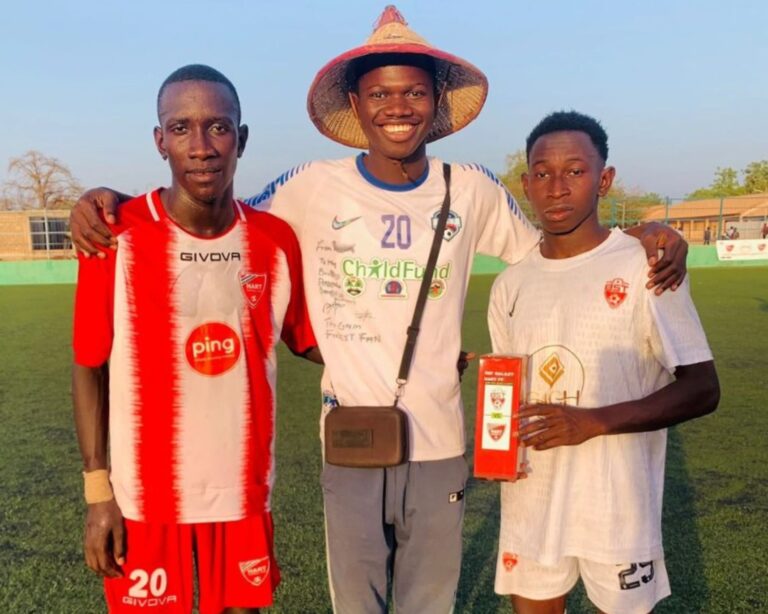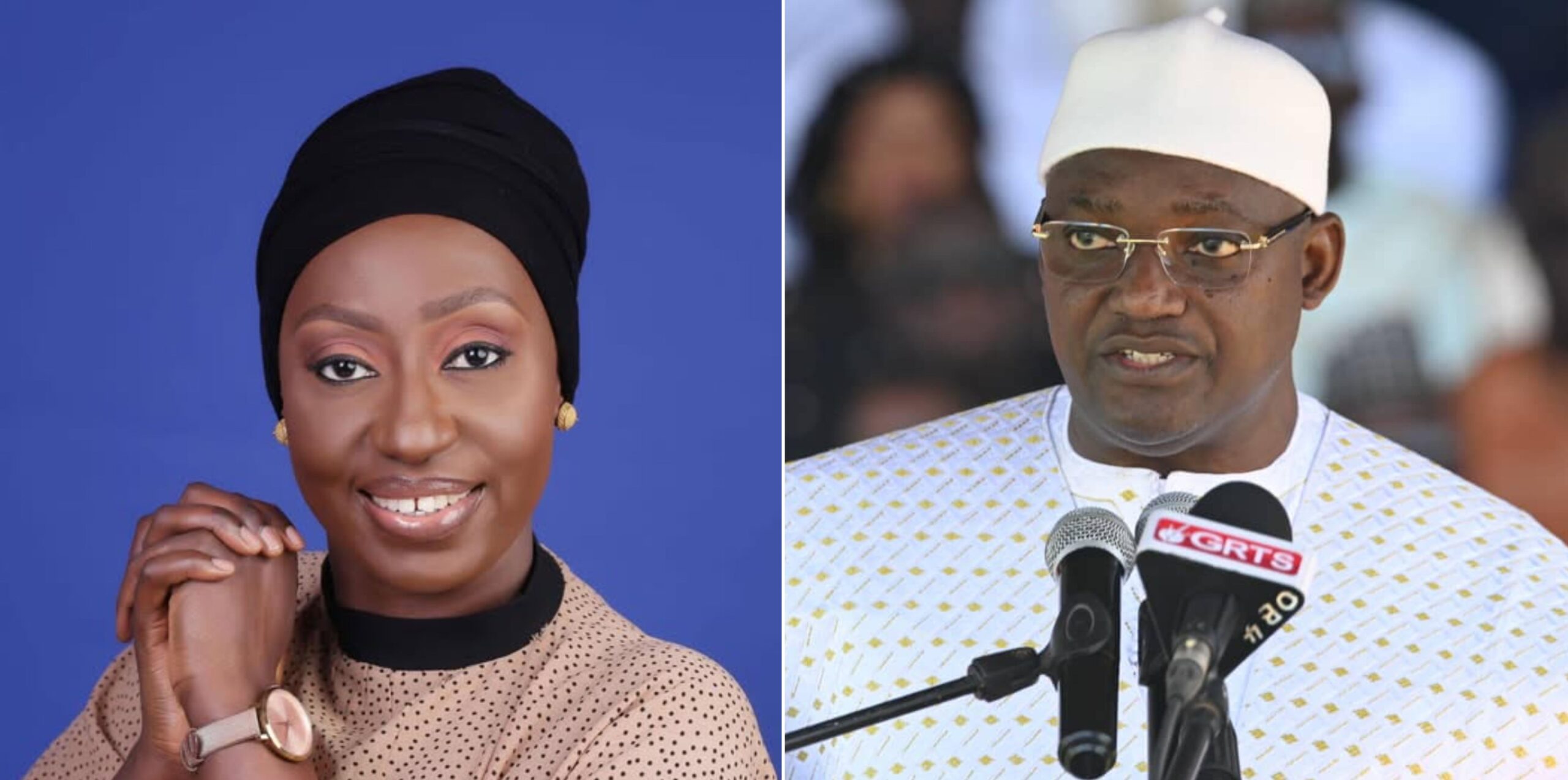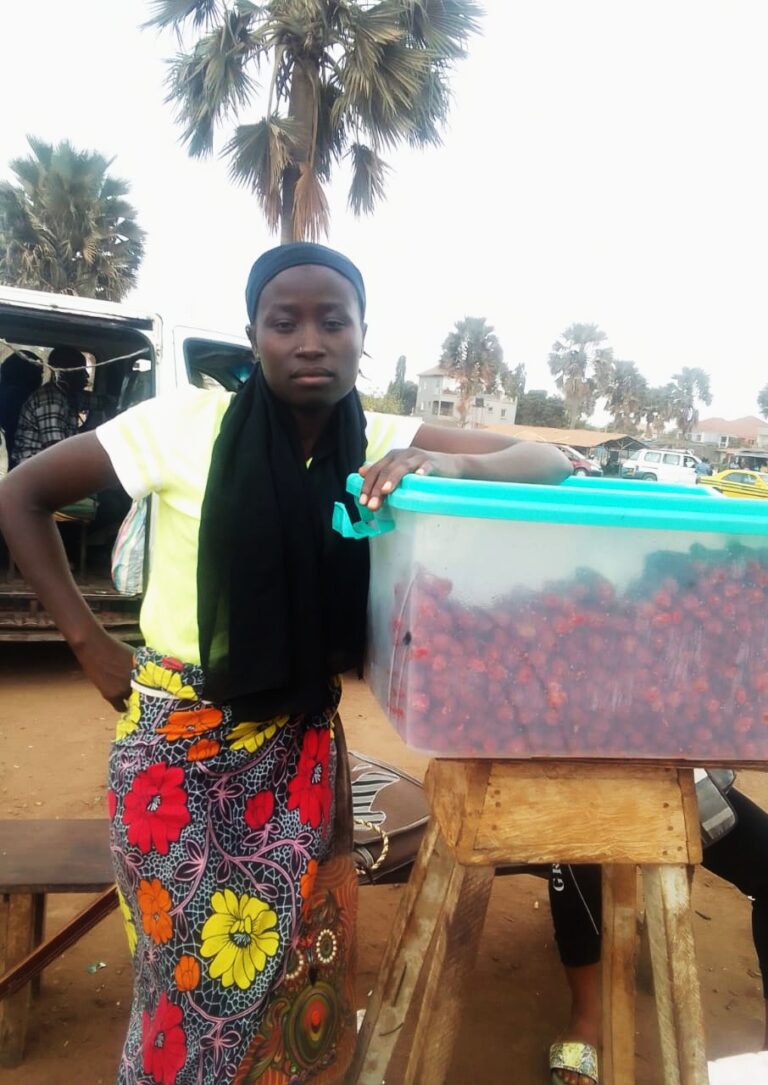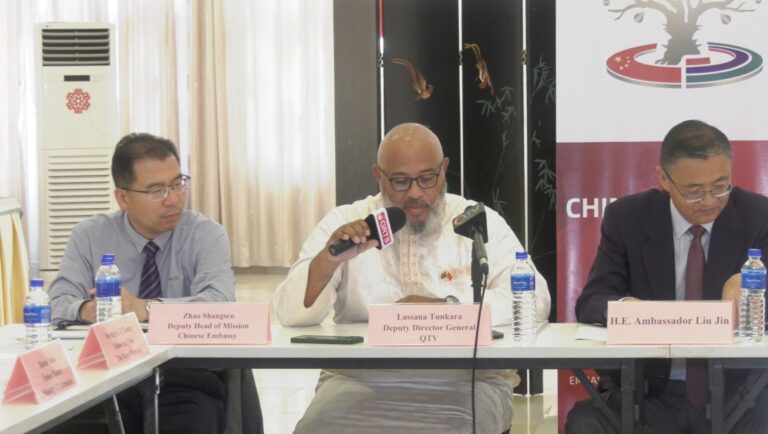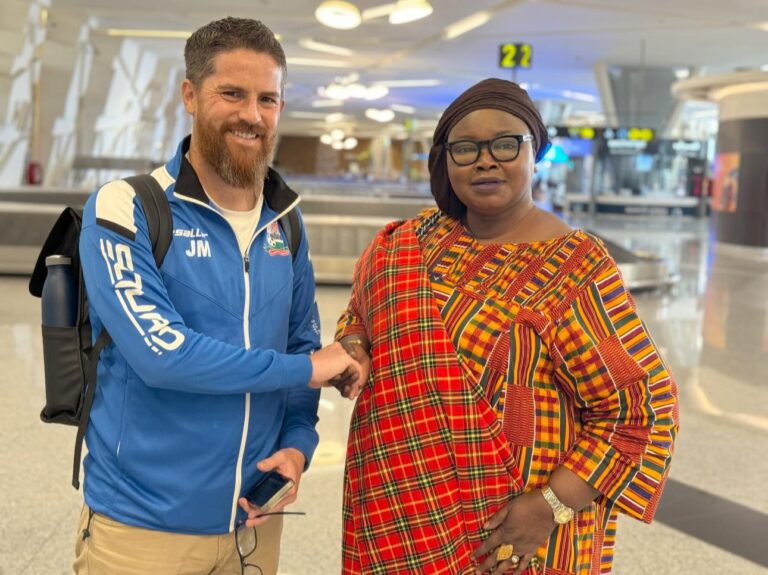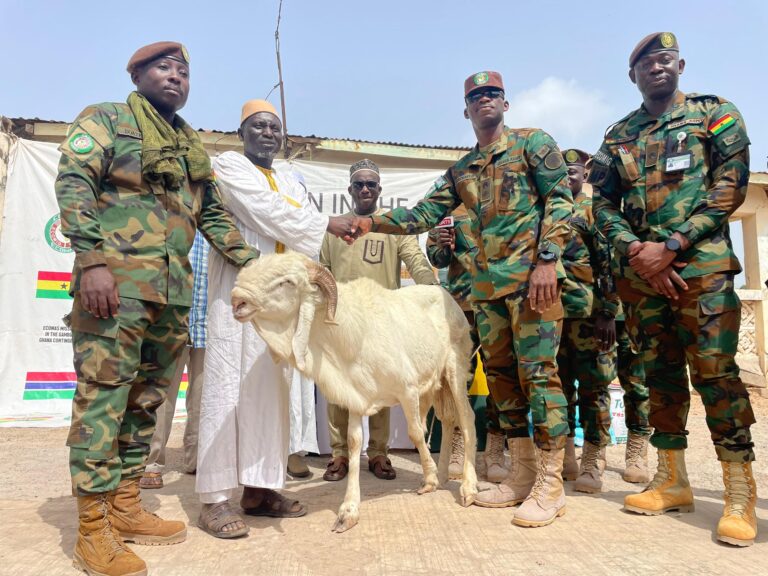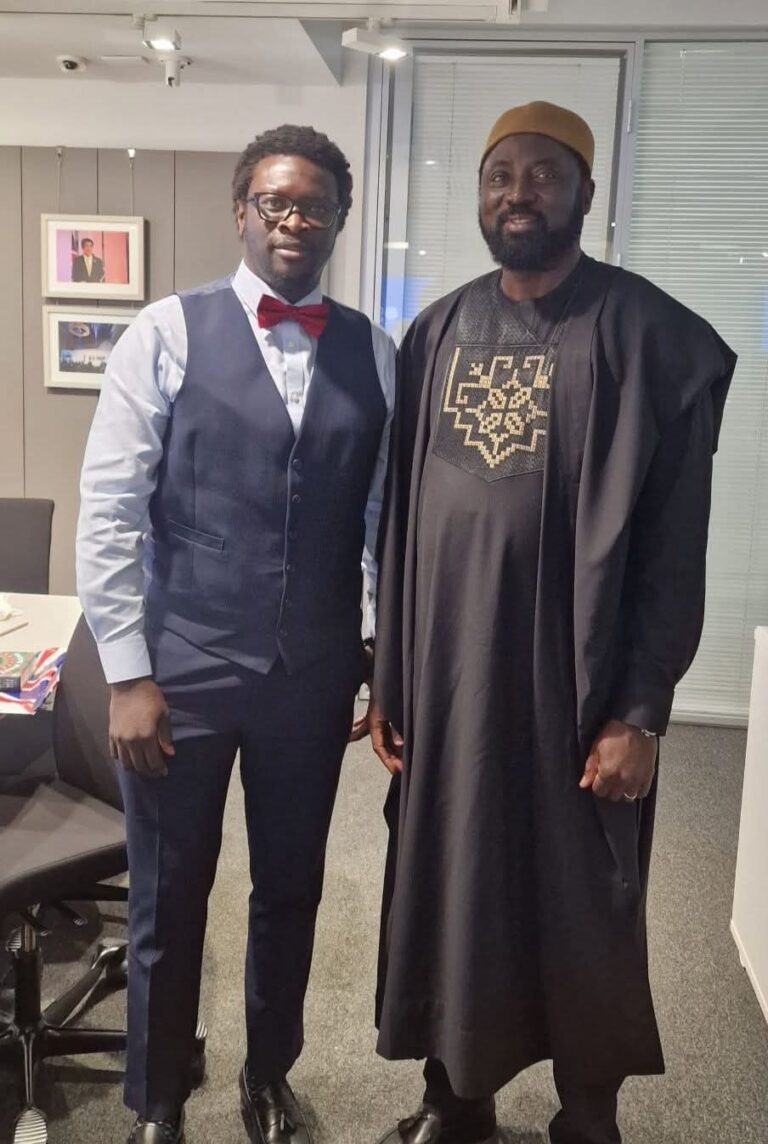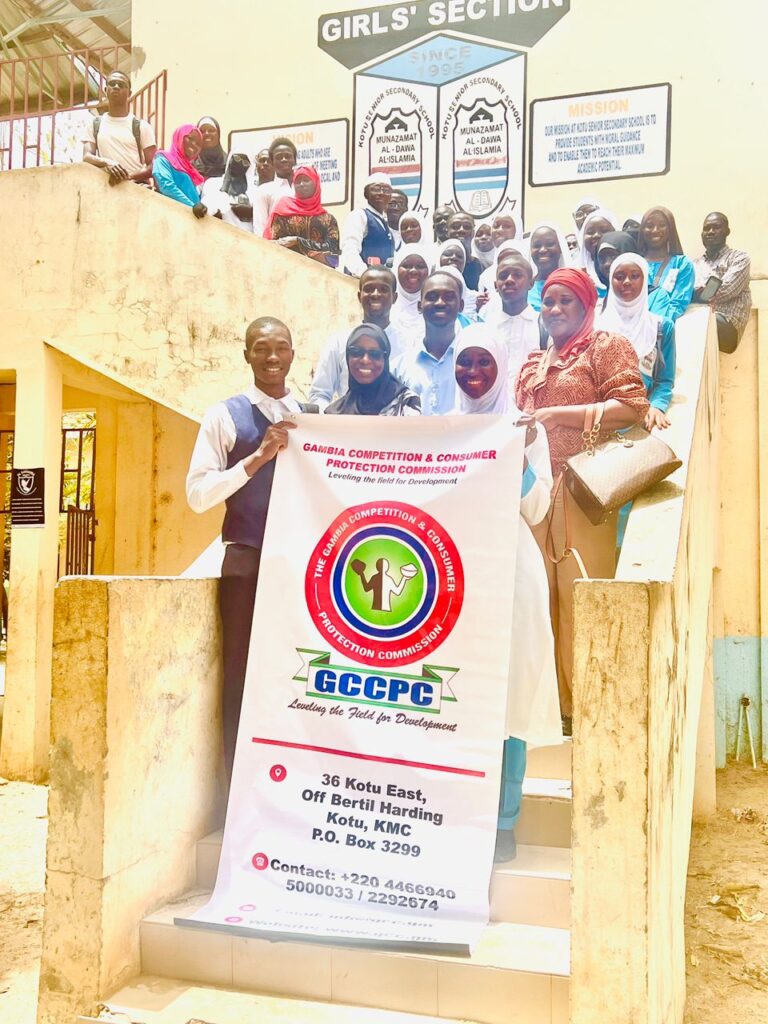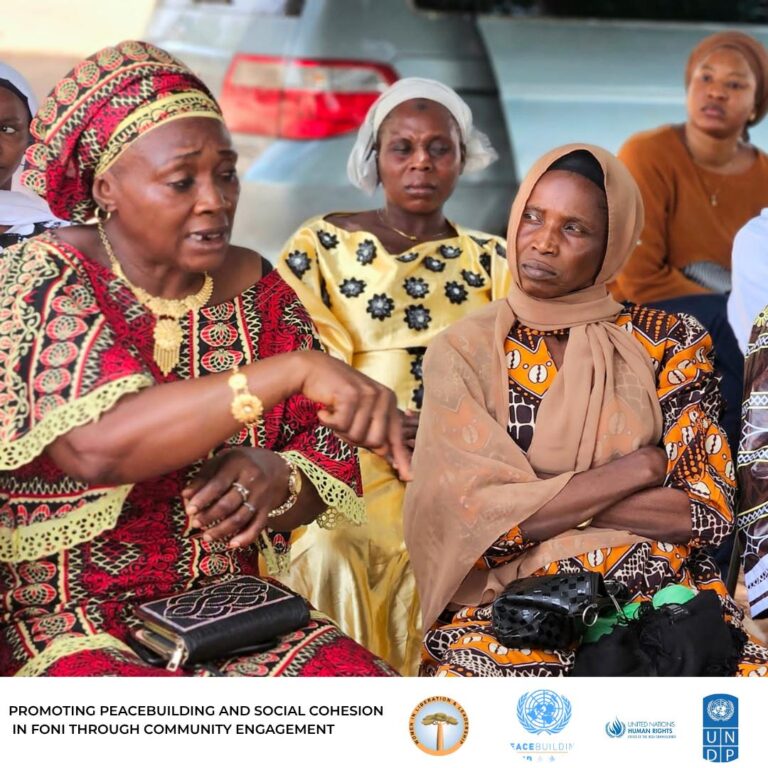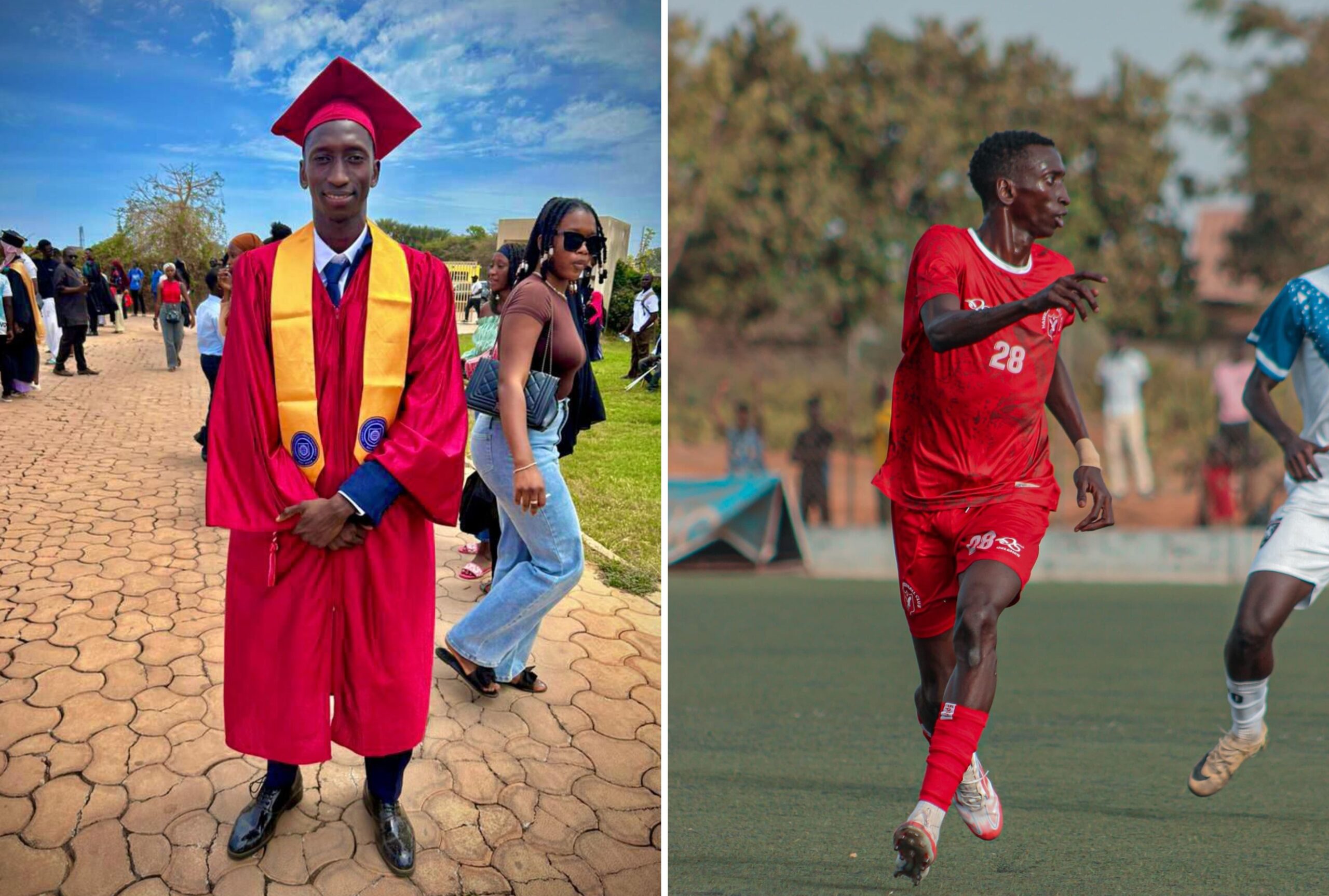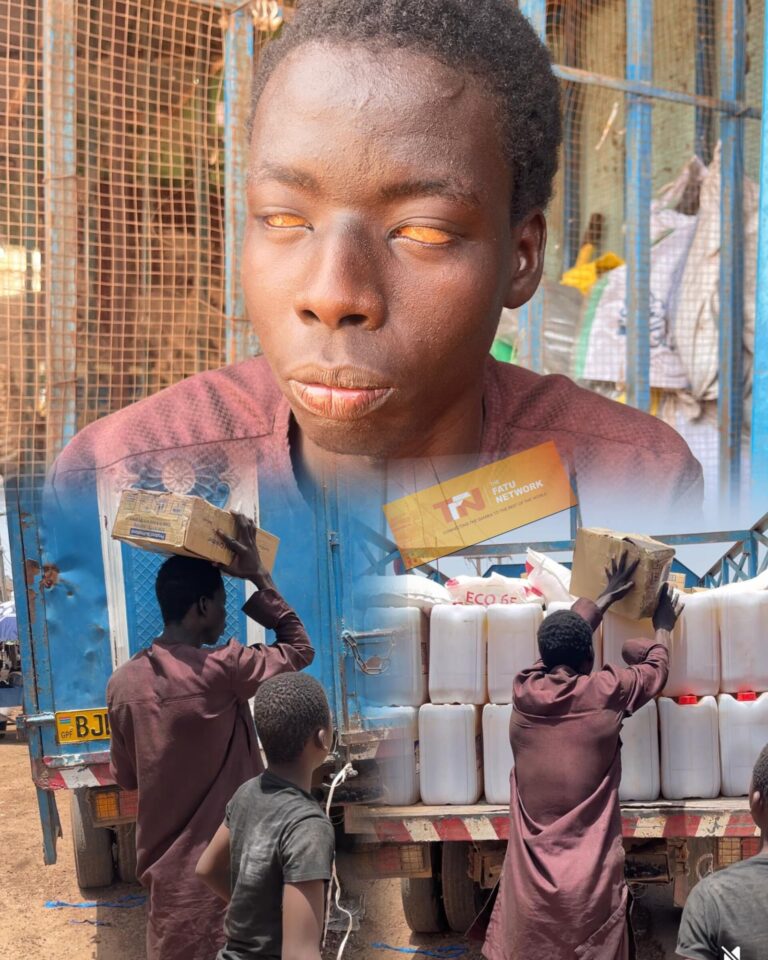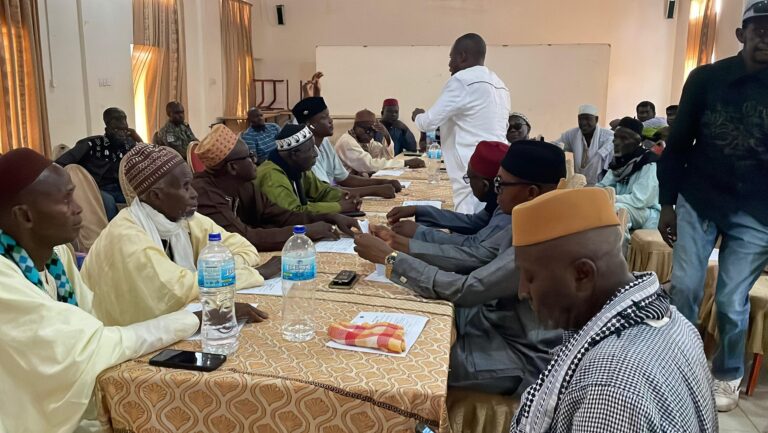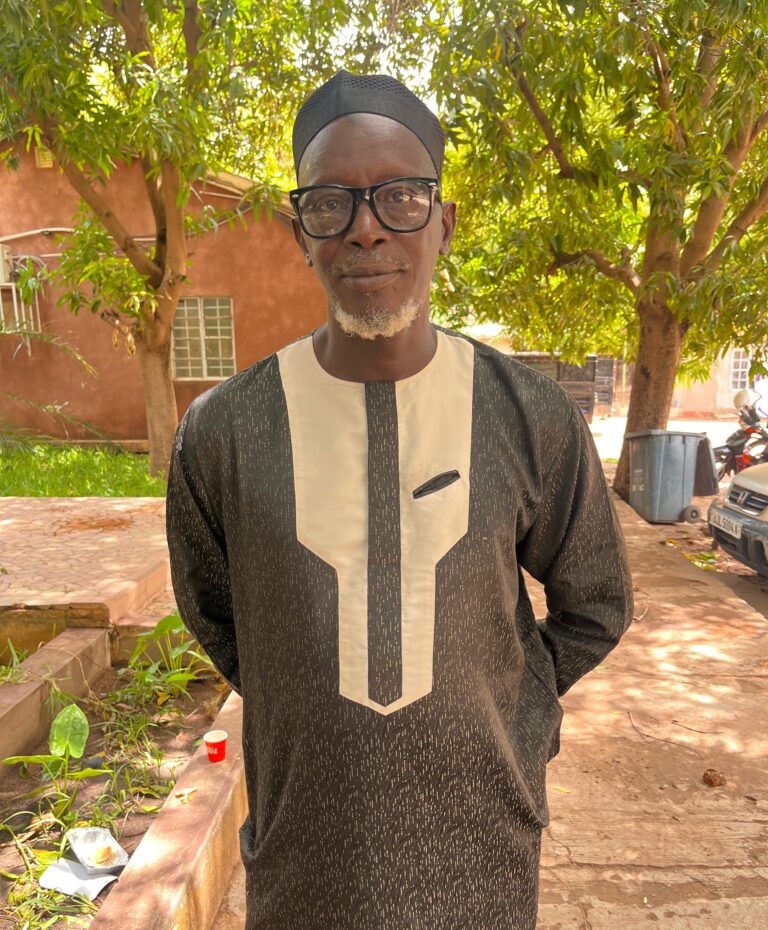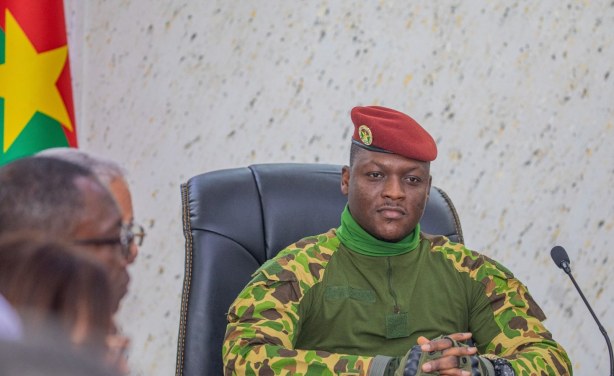Researcher and legal analyst Ousman F. M’Bai has issued a formal open letter to FAR Ltd, the Australian petroleum company formerly active in The Gambia’s offshore oil sector, demanding full transparency and accountability over the company’s exit from the country’s A2 and A5 offshore blocks.
In a press statement accompanying the letter, M’Bai said: “In light of growing public concern, national discourse, and credible allegations surrounding the handling of The Gambia’s offshore petroleum resources, I am today releasing an open letter to FAR Ltd, the Australian oil company that formerly held through its subsidiary FAR (Gambia) Ltd the A2 and A5 offshore blocks.”
M’Bai explained that while he remains “respectful of the Access to Information Commission’s current engagement with the Gambia Petroleum Commission,” he believes “the gravity of the issues at stake, including questions of financial waivers, undisclosed drilling data, redrawn maritime boundaries, and cross-border resource governance, requires that key international stakeholders also be called to account.”
The letter seeks answers on three key areas:
- The terms of FAR (Gambia) Ltd.’s exit from The Gambia
- The accuracy of its statements regarding poor reservoir quality and the supposed absence of commercially viable oil
- Its responsibility to the people of The Gambia in light of generous statutory waivers and the sale of its Sangomar stake to Woodside Energy for more than US $500 million
“This is not a campaign against any company or country,” M’Bai stated. “It is a principled call for transparency, corporate accountability, and respect for national sovereignty and public resources. The Gambia cannot meaningfully participate in the MSGBC Basin, or future regional unitisation talks if its resource governance is based on secrecy, technical ambiguity, and lopsided concessions.”
Significantly, M’Bai announced that “further open letters to Woodside Energy, Petrosen, Petronas, the Senegalese Ministry of Petroleum, the Senegalese Ministry of Foreign Affairs, and regional bodies such as ECOWAS will follow in due course, along with communications to global ESG rating agencies.”
FAR Ltd has been formally notified of the letter but has not responded to date.
M’Bai emphasised his commitment to “cooperating fully with the Access to Information Commission” while asserting that “the right of the Gambian people to know is not subordinate to diplomatic delays or procedural silence.”
Key Allegations in the Open Letter
In his formal letter to FAR Ltd’s Board of Directors and shareholders, M’Bai raises several serious concerns about the company’s operations and withdrawal from The Gambia.
M’Bai notes that “FAR (Gambia) Ltd. was permitted to relinquish its exploration licences under exceptionally favourable terms, despite failing to fulfil its full contractual work obligations.” He points out that this waiver occurred “while FAR Ltd had received in excess of USD $500 million in cash and assumed liabilities from Woodside Energy for its interest in the Sangomar field.”
The letter identifies three primary areas of concern:
Misleading Representation of Drilling Activity: M’Bai alleges that “FAR (Gambia) Ltd.’s surrender letter of 27 January 2023 claims that three wells were drilled. In reality, only two principal wells; Samo-1 and Bambo-1, were ‘completed’, with the third being a side-track of Bambo-1.” He describes this as “at best, a technical inaccuracy and, at worst, a deliberate inflation of work completed.”
Lack of Regulatory Oversight: According to M’Bai, “The Gambia Petroleum Commission has not, despite repeated formal requests, disclosed any quality-assurance measures taken before accepting FAR’s final data submission.” He states that the so-called “Master Inventory” was “accepted without audit or technical verification.”
Ethical and Financial Concerns: M’Bai highlights that “in a country where health, education and infrastructure suffer from chronic underfunding, the unexplained waiver of estimated obligations valued at USD $22 million (exclusive of interest) is deeply troubling.”
Technical Disputes and Transparency Issues
The letter also challenges FAR Ltd’s technical conclusions about The Gambia’s oil potential. M’Bai notes that FAR Ltd’s August 2022 announcement claimed that reservoir levels in the Bambo-1 well “were lateral equivalents to those in the Sangomar field, and that hydrocarbons in those intervals ‘extend into The Gambia.'” However, the company simultaneously concluded these zones were non-commercial due to “poor reservoir quality.”
M’Bai argues that “these findings were not independently verified” and that “FAR (Gambia) Ltd denied Gambian officials real-time verification access during drilling of the Bambo well which it unilaterally declared a ‘tight hole’ and refused point blank to disclose its drilling data.”
He suggests that FAR Ltd’s phrasing that “Sangomar oil extends into The Gambia” is “geologically ambiguous” and questions whether the company “deliberately avoided using the more precise term ‘Sangomar reservoir.'”
Five-Point Demand for Accountability
M’Bai’s letter concludes with five specific demands to FAR Ltd’s Board and shareholders:
- Disclose the exact terms under which the licence waivers were negotiated and obtained
- Justify the inclusion of the sidetrack as a standalone well
- Reimburse The Gambia for the full value of waived obligations, estimated at USD $22 million plus 8% accrued interest
- Publicly explain what ethical review was undertaken before relinquishing the licences on such generous terms
- Submit full drilling data to an independent audit by a reputable international geoscience firm
On the final point, M’Bai argues that such an audit “would provide a credible and impartial assessment of the technical basis for FAR(Gambia) Ltd and FAR Ltd.’s conclusions, including the assertion that oil in the Bambo wells was non-recoverable.”
He concludes: “Transparency, equity, and accountability should not be optional when operating in resource-dependent and governance vulnerable jurisdictions.”
FULL TEXT OF THE OPEN LETTER
The complete text of M’Bai’s open letter to FAR Ltd follows:
OFFICE OF OUSMAN F. M’BAI
C/O FANA FANA CHAMBERS, P.O. Box 990, Banjul, The Gambia
Date: 5th June 2025
Our Ref: OFM/5/6/25/FAR Ltd.
Letter to FAR Ltd (Open Letter to the Board and Shareholders)
Subject: Open Letter Regarding FAR Ltd.’s Exit from The Gambia – Transparency and Shareholder Responsibility, and Ethical Conduct
Dear Board Members and Shareholders 2017-2025,
I write to you concerning the circumstances surrounding FAR Ltd.’s operations and eventual withdrawal from The Gambia’s offshore Blocks A2 and A5. As the majority joint shareholder of FAR (Gambia) Ltd and as of 2023 its sole shareholder, your company bears ultimate responsibility for the conduct and outcomes of its Gambian subsidiary.
It is now a matter of public record that FAR (Gambia) Ltd. was permitted to relinquish its exploration licences under exceptionally favourable terms, despite failing to fulfil its full contractual work obligations. These obligations, explicitly laid out in the original licence and later deleted through two Deeds of Amendment, were waived by the Government of The Gambia, a country that remains one of the most impoverished and aid-dependent nations in the world.
Crucially, this waiver occurred while FAR Ltd had received in excess of USD $500 million in cash and assumed liabilities from Woodside Energy for its interest in the Sangomar field. That field lies immediately adjacent to Gambian waters and was drilled concurrently with FAR(Gambia) Ltd.’s activities in A2 and A5.
Further concerns arise from:
- Misleading Representation of Drilling Activity
FAR (Gambia) Ltd.’s surrender letter of 27 January 2023 claims that three wells were drilled. In reality, only two principal wells; Samo-1 and Bambo-1, were “completed”, with the third being a side-track of Bambo-1. The inclusion of a side-track as a standalone well is, at best, a technical inaccuracy and, at worst, a deliberate inflation of work completed. What else have they got wrong or inflated?
- Lack of Oversight or Review by the Regulator
The Gambia Petroleum Commission has not, despite repeated formal requests, disclosed any quality-assurance measures taken before accepting FAR’s final data submission. This includes the so-called “Master Inventory” which was accepted without audit or technical verification before the closure of FAR (Gambia) Ltd.’s file. In fact, the GPC has stated it is not aware of having issued any quality-assurance certificate to FAR (Gambia) Ltd.
- Ethical Accountability and Public Interest
In a country where health, education and infrastructure suffer from chronic underfunding, the unexplained waiver of estimated obligations valued at USD $22 million (exclusive of interest) is deeply troubling. FAR Ltd.’s own annual filings refer to “generous statutory waivers,” yet neither the rationale nor the ethical justification for receiving such relief has been disclosed.
Furthermore, FAR Ltd.’s 22 August 2022 ASX (Australia Stock Exchange) announcement claimed that the “S440 and S408” reservoir levels in the Bambo-1 well were lateral equivalents to those in the Sangomar field, and that hydrocarbons in those intervals “extend into The Gambia.” Yet, the company simultaneously concluded that these zones were non-commercial due to “poor reservoir quality.”
These findings were not independently verified and, crucially, FAR (Gambia) Ltd denied Gambian officials real-time verification access during drilling of the Bambo well which it unilaterally declared a ‘tight hole’ and refused point blank to disclose its drilling data. The Gambia Petroleum Commission has not confirmed any independent review of the raw drilling data, well logs, or core samples. There is no technical transparency about how conclusions were reached.
Additionally, FAR Ltd.’s phrasing that the “Sangomar oil extends into The Gambia” is geologically ambiguous and raises questions about whether the company deliberately avoided using the more precise term “Sangomar reservoir.” This subtle distinction has critical implications for transboundary resource claims. The omission of any discussion of reservoir connectivity especially when Sangomar’s 23 wells are themselves linked/inter-connected across vast distances, further casts doubt on the objectivity of the reported results.
Such statements, absent transparency or third-party validation, may serve to downgrade The Gambia’s resource potential while indirectly favouring Senegal’s existing production in which FAR Ltd currently has a contingent vested interest amounting to USD $55 million until 2027. The geopolitical consequences of this are significant, particularly in a region where The Gambia has no current resource-sharing agreement with Senegal under the MSGBC framework, unlike Senegal’s arrangements with Mauritania and Guinea-Bissau.
In light of these developments, I call on FAR Ltd.’s Board and its shareholders to:
- Disclose the exact terms under which the licence waivers were negotiated and obtained;
- Justify the inclusion of the sidetrack as a standalone well;
- Reimburse the People/Government of The Gambia for the full value of the waived obligations, estimated at USD $22 million. This figure must be adjusted at 8% accrued interest from the date the waiver was granted;
- Publicly explain what ethical review, if any, was undertaken before relinquishing the licences on such generous terms especially given The Gambia’s status as an extremely poor underdeveloped nation;
- FAR Ltd to submit its full suite of drilling data, including MDT logs, pressure readings, and core analyses, to an independent audit by a reputable international geoscience firm. Such an audit would provide a credible and impartial assessment of the technical basis for FAR(Gambia) Ltd and FAR Ltd.’s conclusions, including the assertion that oil in the Bambo wells was non-recoverable. It would also bring needed clarity to the broader question of hydrocarbon connectivity between the Sangomar field and The Gambia’s A2 licence area. I believe this would be a responsible and commendable step, aligning with FAR Ltd.’s ESG obligations and its duty to shareholders, host nations, and the investing public.
Transparency, equity, and accountability should not be optional when operating in resource-dependent and governance vulnerable jurisdictions.
Sincerely,
Ousman F. M’Bai
London/UK


